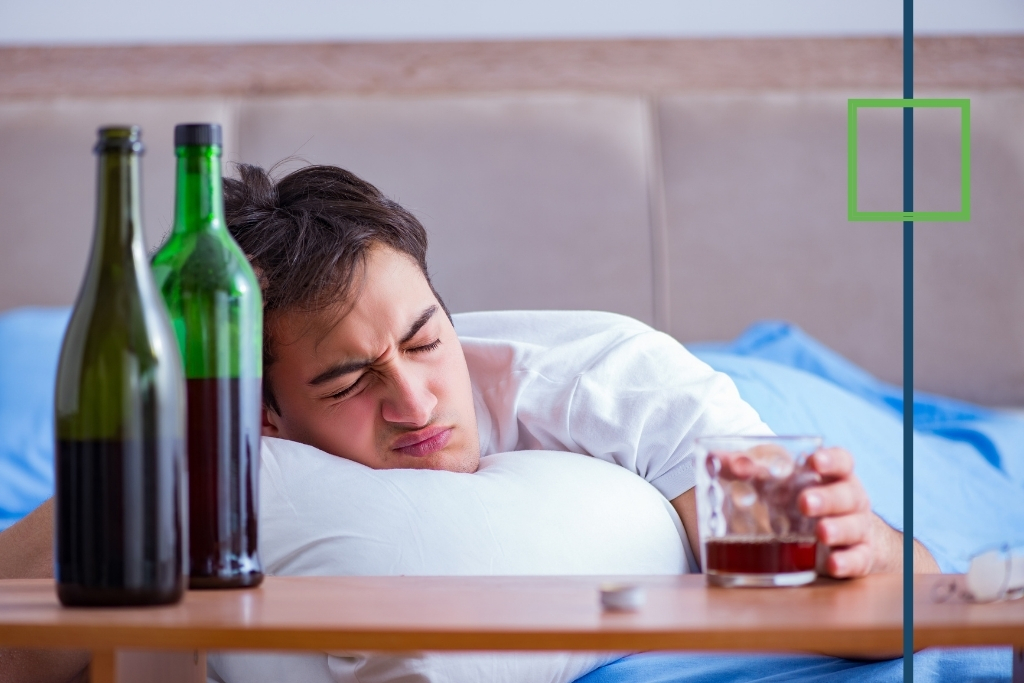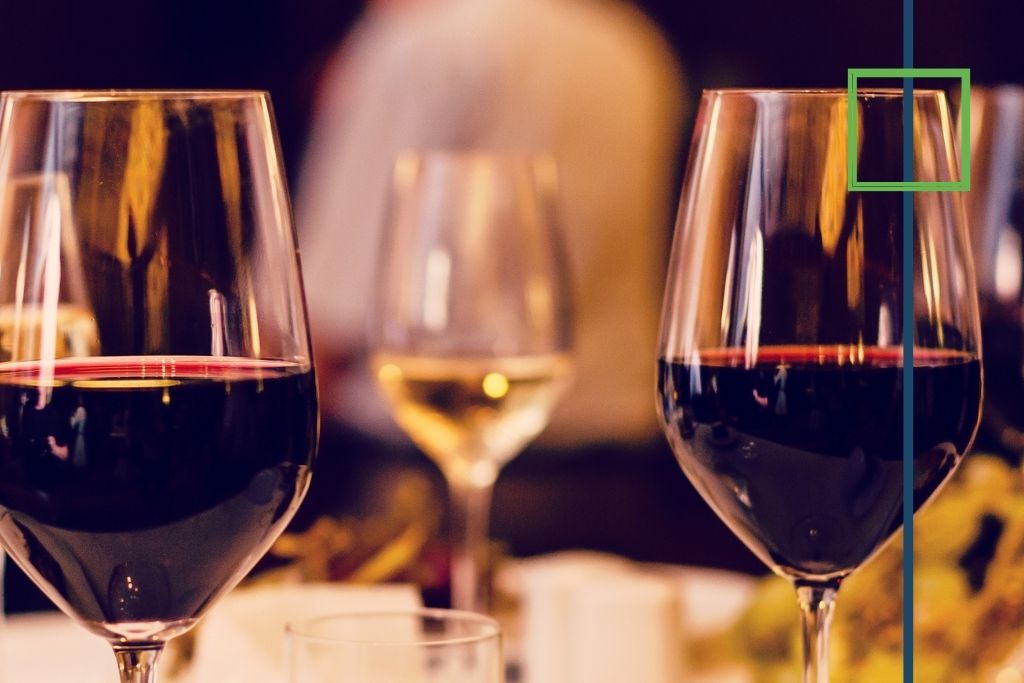Understanding Irritable Bowel Syndrome
Irritable bowel syndrome (IBS) is a common disorder that affects the gastrointestinal tract, mainly the stomach and intestines. Constipation, diarrhea, and abdominal pain are all possible symptoms. There may also be cramping. IBS is a chronic condition that requires long-term management.
According to research, IBS and alcohol do not significantly threaten your physical well-being or raise your risk of cancer or other bowel-related diseases. Its exact cause is uncertain. Numerous reasons have been put up, but none have been proven to cause IBS. Also, IBS doesn’t change intestinal tissue or raise your risk of developing colorectal cancer.
Only a small percentage of IBS victims experience severe symptoms. Some individuals can manage their symptoms by controlling their diet, way of life, and stress. Medication and counseling might be used to manage more severe symptoms.
Skip To:
- Understanding Irritable Bowel Syndrome
- IBS Causes
- Can Alcohol Cause IBS?
- IBS Symptoms
- Alcohol Triggers IBS
- IBS Alcohol Hangover
- Sugar Alcohols and IBS
- Drinking Alcohol Helps IBS
- What Alcohol is safe for IBS?
- IBS Alcohol Reaction
- Can Alcohol Cause IBS Flare Ups?
- Can Alcohol Aggravate IBS?
- Does Alcohol Make IBS Worse?
- IBS and Alcoholism Treatment
Learn More:
Get Help. Get Better. Get Your Life Back.
Searching for Accredited Drug & Alcohol Rehab Centers Near You? Or Mental Health Support?
Even if you have failed previously, relapsed, or are in a difficult crisis, we stand ready to support you. Our trusted behavioral health specialists will not give up on you. Call us when you feel ready or want someone to speak to about therapy alternatives to change your life. Even if we cannot assist you, we will lead you wherever you can get support. There is no obligation. Call our hotline today.
FREE Addiction Hotline – Call 24/7IBS Causes
Irritable bowel syndrome (IBS), a condition that affects the colon fairly often, is believed to be intensified by alcohol. Although the exact causes of IBS are unknown, some foods and beverages, especially alcohol, can cause IBS episodes.
IBS symptoms may include diarrhea, constipation, bloating, gas, and stomach discomfort. IBS is chronic, which is unpleasant, but it is treatable. Most people treat their IBS symptoms with a healthy diet, exercise, and stress reduction, while medication-based treatments could also be used.
IBS symptoms often come and go for most people, although they are often triggered by stress or certain substances. Sometimes there will be a severe flare-up of symptoms, followed by a period of improvement or total cure.


Get Your Life Back
Find Hope & Recovery. Get Safe Comfortable Detox, Addiction Rehab & Mental Health Dual Diagnosis High-Quality Care at the We Level Up Treatment Centers Network.
Hotline (877) 378-4154Can Alcohol Cause IBS?
People occasionally ask if alcohol can cause IBS symptoms given that alcohol can set off and worsen IBS symptoms. Although there aren’t many studies on this subject, research shows that drinking alcohol does not seem to raise the chance of getting IBS.
The following are significant considerations with alcohol and IBS:
- IBS symptoms may come and go, but drinking alcohol can worsen them.
- Alcohol intensifies IBS by irritating the digestive tract.
- Compared to other types of alcohol, beer seems to cause IBS symptoms more frequently.
- Alcohol tolerance can affect a person’s IBS symptoms.
- A balanced diet can lessen IBS symptoms.
Comfortable Facilities & Amenities
High-Quality Addiction & Mental Health Rehabilitation Treatment
Rehab Centers TourRenowned Addiction Centers. Serene Private Facilities. Inpatient rehab programs vary.
Addiction Helpline (877) 378-4154Proven recovery success experience, backed by a Team w/ History of:
15+
Years of Unified Experience
100s
5-Star Reviews Across Our Centers
10K
Recovery Success Stories Across Our Network
- Low Patient to Therapist Ratio
- Onsite Medical Detox Center
- Comprehensive Dual-Diagnosis Treatment
- Complimentary Family & Alumni Programs
- Coaching, Recovery & Personal Development Events
IBS Symptoms
IBS symptoms vary from person to person and can be more severe in some people than others. Sometimes after eating specific foods or during stressful periods, symptoms can worsen.
IBS most frequently shows as:
- cramping and pain in the abdomen
Diarrhea, constipation, or occasionally both - The stomach feels bloated and swollen
- too much wind (flatulence)
There may also be other, less typical symptoms, such as:
- Lack of energy
- feeling unwell
- heartburn
IBS symptoms can significantly affect a person’s daily life, leading to some people experiencing feelings of stress and low mood.
IBS and Alcohol Symptoms
Alcohol is thought to worsen IBS symptoms. Drinking excessive amounts of alcohol might worsen IBS symptoms and cause additional digestive issues.
IBS and alcohol victims could encounter persistent symptoms like:
- Diarrhea
- Abdomen ache
- Constipation
- Frequent bowel movement variations
- Bloating
IBS and alcohol victims may also experience the following symptoms in addition to the disease’s basic ones:
- Excessive gas
- Cramping
- Nausea
- Indigestion
World-class, Accredited, 5-Star Reviewed, Effective Addiction & Mental Health Programs. Complete Behavioral Health Inpatient Rehab, Detox plus Co-occuring Disorders Therapy.
CALL (877) 378-4154End the Addiction Pain. End the Emotional Rollercoaster. Get Your Life Back. Start Drug, Alcohol & Dual Diagnosis Mental Health Treatment Now. Get Free No-obligation Guidance by Substance Abuse Specialists Who Understand Addiction & Mental Health Recovery & Know How to Help.
IBS and Alcohol Vomiting
Vomiting is one of the most typical signs of IBS; while it can be uncomfortable and take some time, it will eventually stop. Coupled with alcohol, it may make it more difficult to recover from vomiting and may bring on other adverse effects.
Experience Transformative Recovery at the We Level Up Treatment Center.
See our authentic success stories. Get inspired. Get the help you deserve.



Start a New Life
Begin with a free call to an addiction & behavioral health treatment advisor. Learn more about our dual-diagnosis programs. The We Level Up treatment center network delivers various recovery programs at each treatment facility. Call to learn more.
- Personalized Care
- Caring Accountable Staff
- Comfortable Amenities
- Licensed & Accredited
- Renowned w/ 5-Star Reviews
We’ll Call You
IBS and Alcohol Diarrhea
One of the main and most common symptoms of IBS is diarrhea, it can be unpleasant and may take a while, but it will go away by itself. Once combined with alcohol, it may take a longer time for a person to recover from diarrhea and may cause other side effects to appear.
IBS and Alcohol Intolerance
Alcohol has been known to irritate the gut, which can cause IBS symptoms to worsen and serve as a sign that a person cannot tolerate large amounts of alcohol. If drinking alcohol is one of your triggers, you may experience worsening cramping or bloating after consuming even a modest amount. If you are particularly sensitive to alcohol, you can also experience constipation.
IBS Alcohol Abdominal Pain
Alcohol is known to upset the gastrointestinal tract, making IBS symptoms worse. If ingesting alcohol is one of your triggers, even a small amount may cause your cramping or abdominal pain to get worse. You may get diarrhea and constipation if you are extremely sensitive to alcohol.

Alcohol Triggers IBS
In terms of particular types of alcohol and IBS, beer appears to be the worst culprit, most likely due to the interaction between the alcohol and the carbonation in the beer. Many IBS victims may discover that even a modest amount of alcohol causes them to experience cramps and diarrhea.
The degree to which each person is sensitive to alcohol may differ. For instance, some IBS victims who drink alcohol may feel symptoms after just one. Others may need more alcohol before they start to experience the effects. Many IBS victims claim that quitting alcohol lessens the signs that they feel.
IBS Alcohol Hangover
It’s crucial to be aware of alcohol consumption, even if it’s not always the case that drinking alcohol causes IBS symptoms. While drinking alcohol can sometimes cause a person to feel more side effects from IBS, it is always recommended to get help from a medical professional first to help control alcohol intake and prevent alcohol hangovers during IBS. This is because research suggests that consuming more alcohol may raise the likelihood of an IBS flare-up. Alcohol consumption has been demonstrated to alter the gut in numerous ways, which may contribute to IBS symptoms.
Sugar Alcohols and IBS
The main issue with sugar alcohols is that some of them, especially when ingested in high quantities, can negatively affect the gastrointestinal system in those with and without digestive disorders, including irritable bowel syndrome (IBS).
Most of them end up in your large intestine, where your gut bacteria break them down because your body cannot digest most of them. Some people may get gastrointestinal side effects from these carbohydrates since their intestines can’t digest them efficiently. Because of this, consuming a lot of sugar alcohols quickly may cause you to feel gas, bloating, and diarrhea.
Drinking Alcohol Helps IBS
While there hasn’t been much research regarding whether drinking alcohol can help with IBS, people seem to agree that everyone’s drinking patterns and IBS triggers are so different, which is why the solution to this issue is so difficult. While some IBS victims must eliminate alcohol from their diets, others can occasionally have a drink.
Some people with IBS get relief from their symptoms when they entirely stop drinking alcohol. Others find comfort when they reduce their alcohol intake and steer clear of alcoholic beverages more likely to trigger flare-ups, such as beer. However, each person’s level of sensitivity varies, and even one alcoholic beverage might cause a flare-up.
What Alcohol is safe for IBS?
Some types of alcohol may be more likely than others to result in flare-ups. Reducing their alcohol use or avoiding specific alcoholic beverages, like beer, can bring about pleasure for some people. It’s important to remember that the FODMAP (carbohydrates that frequently cause IBS symptoms) and gluten content of your beverages may be related to digestive issues.
FODMAP, which stands for fermentable oligosaccharides, disaccharides, monosaccharides, and polyols, are sugars with short chains that the small intestine has trouble absorbing. After consuming them, some people develop intestinal discomfort.
For example:
- Cider: Typically, fruits like apples, pears, or berries are used to make this drink. Cider has not been examined for its FODMAP content. Alcohol is created during production from the sugars fructose, sucrose, and glucose. However, it’s probable that some FODMAP-containing sugar alcohols will remain after fermentation or that other sugars, like fructose, will be added for sweetness. Ciders might not be low in FODMAPs as a result.
- Wine: Most wines, including red, white, dry, sparkling, and sweet, have minimal FODMAP concentrations when taken in one glass. At this serving size, the fructose content is acceptable low. Sherry and port, fortified wines, are high in fructose and not low in FODMAPs.
- Spirits: At a serving size of one glass, most alcoholic beverages, such as gin, vodka, and scotch, are low in FODMAPs. The only exception to this is rum, which should be avoided because it contains a lot of FODMAPs. Spirits typically don’t contain gluten.

IBS Alcohol Reaction
IBS and alcohol do not mix well together. Alcohol might worsen IBS symptoms because it irritates the gastrointestinal system. Since alcohol is a chemical that disturbs the intestinal tract and bowel, consuming it may be difficult for those with IBS.
Alcohol may temporarily reduce stress, but it can make people more anxious over time, which is something else to consider when it comes to alcohol and IBS. IBS flare-ups can be brought on by stress and nervous system issues.
Can Alcohol Cause IBS Flare Ups?
Alcohol has been found to upset the colon, which can cause IBS symptoms to worsen. If drinking alcohol is among your triggers, you may experience worsening cramping or bloating after consuming even a modest amount. You can also get diarrhea or constipation if you are very sensitive to alcohol.
Can Alcohol Aggravate IBS?
Even while it’s not always the case that drinking alcohol results to IBS symptoms, it’s still important to be cautious of alcohol consumption. When drinking alcohol might occasionally make IBS side effects worse, it is always advised to get medical advice beforehand to help manage alcohol intake and avoid alcohol hangovers while dealing with IBS. This is due to evidence that indicates drinking more alcohol may increase the risk of an IBS flare-up. It has been shown that drinking alcohol changes the stomach in several ways, which may contribute to the symptoms of IBS.
Does Alcohol Make IBS Worse?
It’s important to remember that while alcohol may momentarily decrease stress, it can also lead to long-term increases in anxiety. Stress and neurological system disorders might trigger IBS flare-ups.
Alcohol and IBS don’t go together well. Alcohol may make IBS symptoms worse since it upsets the digestive tract. Consuming alcohol may be challenging for persons with IBS since it contains a substance that irritates the colon and intestinal tract.

IBS and Alcoholism Treatment
If you believe a loved one is abusing alcohol, you should learn more about the substance and related addictions to understand their needs better. The next step is to plan treatment so your loved ones can combat the effects of alcohol withdrawal in a safe and welcoming setting. Instead of passing judgment during this discussion, provide compassion and support. Finally, be supportive during the entire course of treatment.
Additionally, chronic alcohol use can have negative health and psychological effects, making early treatment extremely important. You can receive specialized care in an inpatient alcohol rehab program to help you quickly get through the early phases of alcohol withdrawal.
Alcohol use disorder treatment options include:
- Medically-assisted detox
- Medication-Assisted Treatment
- Cognitive Behavioral Therapy
- Dialectical behavioral therapy
- Behavioral Therapy
Although there are numerous treatment centers, not all are appropriate for everyone. Those in need of assistance should seek a facility that provides comprehensive alcohol addiction treatment. Additionally, this institution must be equipped to handle co-occurring mental illnesses and other substances. If you or a loved one is experiencing alcohol addiction, our medical experts, therapists, and counselors will be happy to answer any questions since they understand what you are going through. The addiction specialists at Level Up NJ are willing to help you.